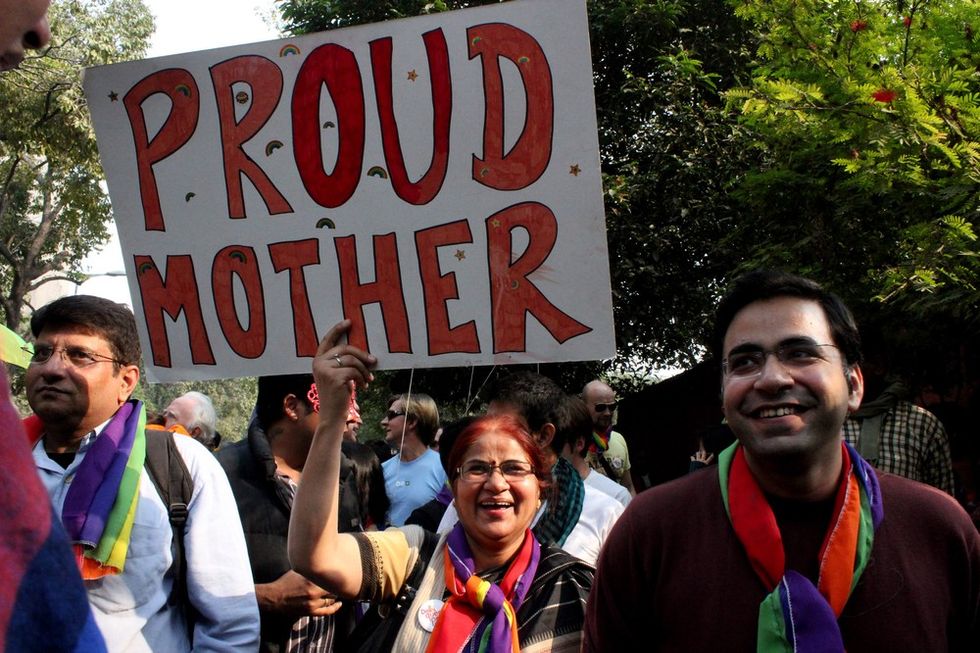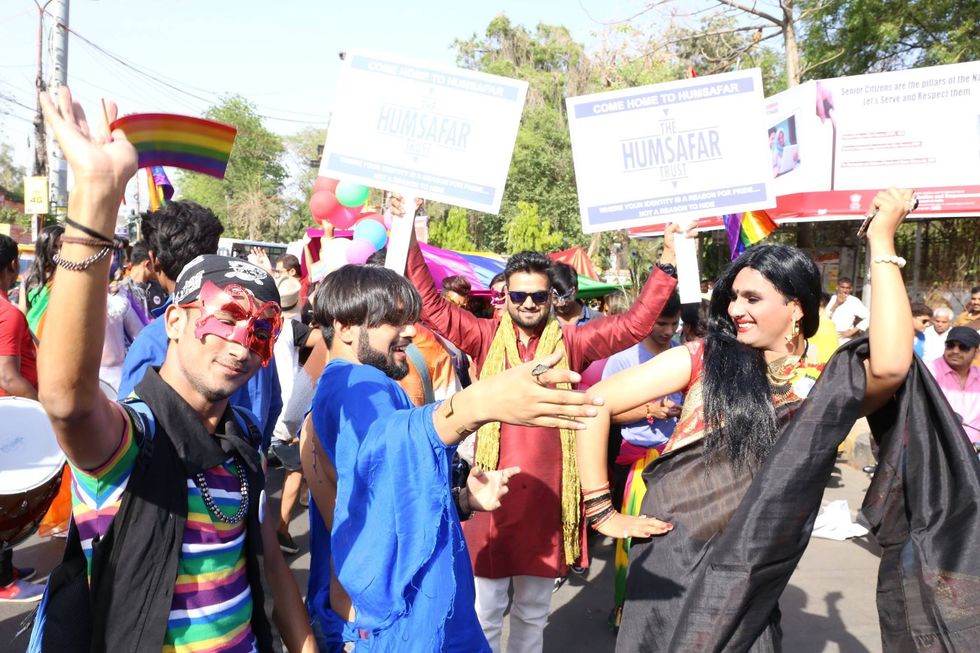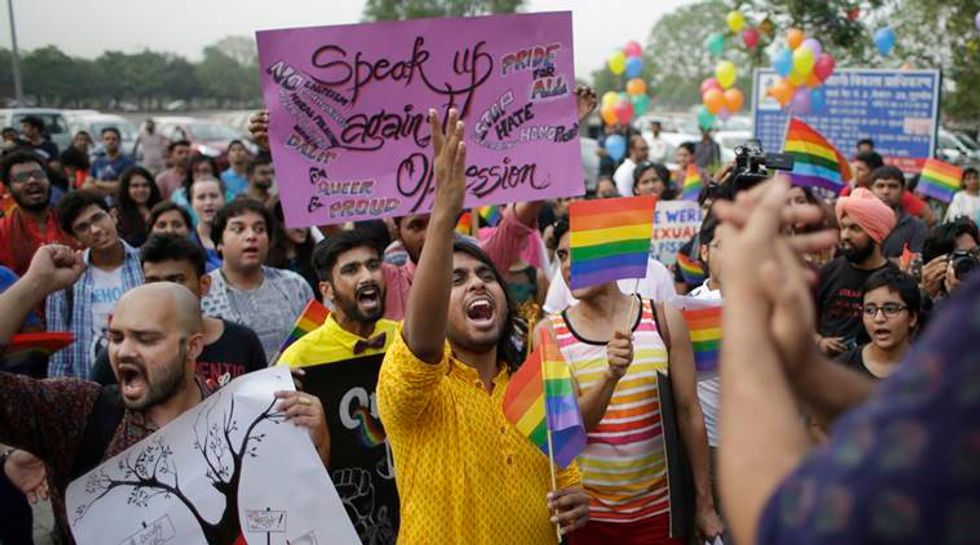In 1999, Kolkata took a large step towards equality by hosting India's first pride walk. In 2003, Delhi hosted the first gay pride parade in India. Madurai hosted the first Gender Queer Pride Parade in 2012.
On April 9th of this year, Lucknow hosted India's first pride parade. As multiple pride parades are held throughout India, I wanted to learn about the areas and the response after viewing participants hiding their identity. Lucknow is located in the northeast region of India and is known as the place of nawabs (emperors of the Mughal empire). It has significant history is still prevalent reflecting centuries of ruling as well as culture. It is the site of India's First War of Independence against the British empire in 1857.Organizers of the event commented that they felt supported by the local community, and from its history and culture, I would expect there to be not only pride but support. With over 300 participants, Lucknow was filled with color and pride.
However, as much as participants felt they could chant, dance, and show their pride, there was still a need to hide their identity as some wore masks or scarves.
Though the local community was supportive, India's current prime minister is quiet on LGBTQ rights and the LGBTQ community expresses this is not the first time the government's response to questions or opportunities to show support has been upsetting. The community demanded him to speak after he failed to attend a United Nations Human Rights Council to hire an investigator to protect the rights of homosexuals and transgender people worldwide.
After the Orlando shooting last year, he expressed his sympathy via Twitter, and as fellow leaders followed suit, the community expressed their frustration regarding Section 377 of India's Penal Code (IPC) which criminalizes homosexuality. Not only did the Supreme Court keep this in law, they were re-criminalizing it after the Delhi High Court decriminalized it in 2009. Section 377 of the IPC goes back to the colonization of India by the British empire in 1857 and was enforced in 1862.
There is the government, and then there are the people.
Pride parades, organizers and participants note seeing an increase in acceptance among the community. The presence of these events is making a great impact in expanding queer spaces. The Wall Street Journal quotes activistMr. Bhan stating, "To me, I think the law is beginning to mean less and less."
However, homosexuality remains a taboo in Indian society as a whole and is viewed as 'defiant behavior' among many. In developing and growing as a country, the government will need to follow the people. As much as the traditions of India are embedded into societal stigmas and customs, recognition of who really put those in place is necessary. They do not reflect India's cultural history. They reflect the history of an intruder.






















